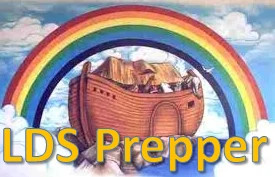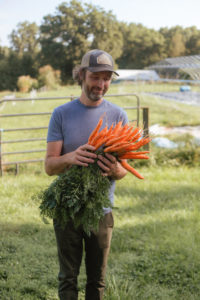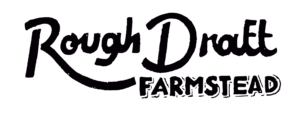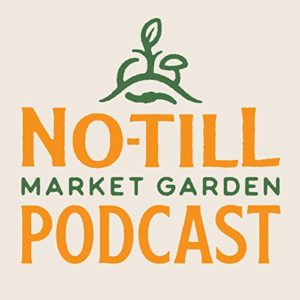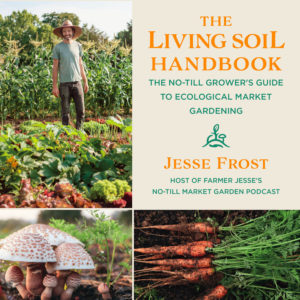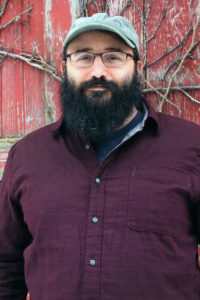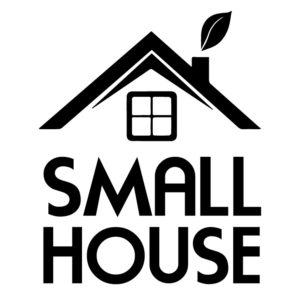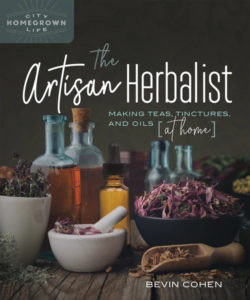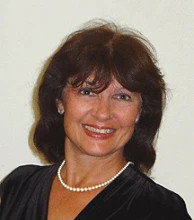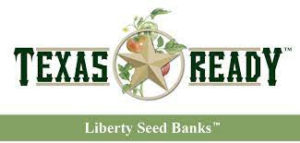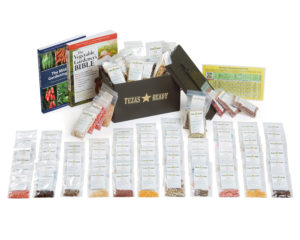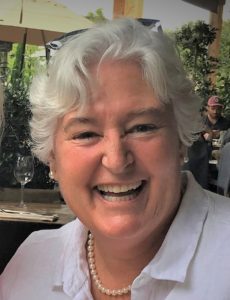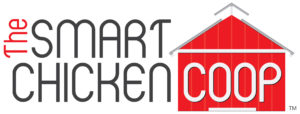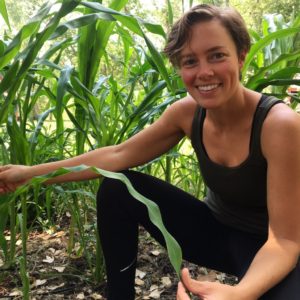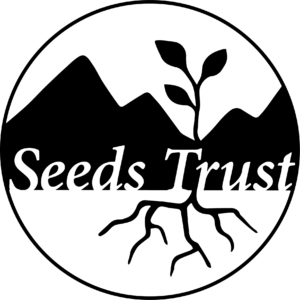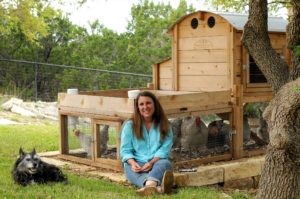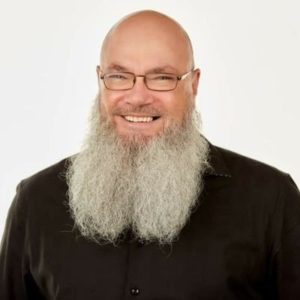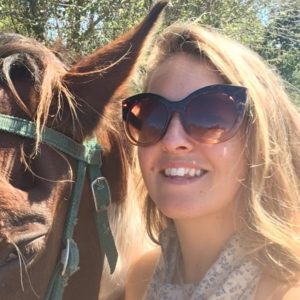Podcast: Play in new window | Download
David Gilmore, known as the LDS Prepper on YouTube. Posted his first video 10 years ago.
He was inspired by other YouTube prepper channels and wanted to share what he was doing and learning on his journey and preparedness.
Today his channel has over 210,000 subscribers and over 44 million video views.
Please checkout his quality videos and products at his website and YouTube channel, linked below!
Website – https://ldsprepperstore.com/
Youtube Channel – LDSPrepper
Show Notes
- How LDS Prepper Got Started
- A Passion for Helping People Be Prepared
- Value of Building Rapport With Your Customers
- “Once You Educate Customers, Your Going To Get Sales”
- Knowing Where Your Customers Congregate – Online / Offline
- Top Seller – LDS Prepper Premium Micro-Nutrient Mix
- Mittleider Gardening Course Book
- What I Like About Having an Online Business in the Prepping Industry
- Continued Education and Growth for Sustainability is Needed Around The World
- Personal & Business Goals For The Next Year
- Other People’s Traffic: Tips for Growing Your Online Youtube Channel / Business
Transcription
David: I found that really I can ship anywhere in the world. And I do so I need to make myself available to the world.
So I started on YouTube.
And then when I make a YouTube video I also put a link on my Facebook profile because I’ve got 5,000 friends, okay, I’ve never met. But however, they feel like they know me because they’ve watched the videos right?
They say this all the time, I feel like I know you, I’ve watched 300 of your videos.
Podcast Intro: If you’re someone who refuses to go along to get along, if you question whether the status quo was good enough for you and your family.
If you want to leave this world better off than you found it and you consider independence a sacred thing.
You may be a prepper, a gardener, a homesteader, a survivalist, or a farmer or rancher, an environmentalist or a rugged outdoorsman.
We are here to celebrate you whether you’re looking to improve your maverick business or to find out more about the latest products and services available to the weekend rebel.
From selling chicken eggs online, to building up your food storage or collecting handmade soap.This show is for those who choose the road less traveled the road to self-reliance for those that are living a daring adventure, life off the grid.
Brian: David Gilmore, known as the LDS Prepper on YouTube. Posted his first video 10 years ago.
He was inspired by other YouTube prepper channels and wanted to share what he was doing and learning on his journey and preparedness.
Today his channel has over 192,000 subscribers and over 42 million video views.
He has become a true YouTube influencer. His passion has turned from a hobby to a seven figure a year business as an affiliate for preparedness products and producer of his own product. Today he shares his insights with us on how to start an online business with zero capital zero risk and a mobile phone.
David Gilmore, welcome to the Off-the-Grid Biz Podcast.
David: Thank you Brian. Glad to be here.
Brian: Yeah, I really appreciate it.
How did you end up at this point?
How did the whole journey start with you, David?
David: Great question.
I’m really a visual learner. My wife reads lots of books, her nightstand is piled with books and she just goes through the books. And I get to watch a video I get it.
I gotta see physically. Instead of me googling things for answers, I go to YouTube.
I call it YouTube University. And it really helped me out and I am preparedness-minded.
I feel it’s my responsibility as a father and as a husband to provide and protect. I was always looking for solutions and YouTube just seemed like a great place to do that, and I appreciate what others put up.
So I thought, well, maybe I should share some of the things that I’m doing.
First of all, had to come up with a YouTube name.
And I thought okay, well, you know, there’s like New York Prepper and there’s a Southern Prepper, and there’s Texas Prepper.
So how would I identify myself something that would reflect who I am?
And first and foremost, I’m a Christian, I’m a member of the Church of Jesus Christ of Latter Day Saints.
So the abbreviation for that is LDS.
And then I’m a provider and protector, and I’m a prepper.
So I just made it LDS Prepper.
So that’s my YouTube channel. And then I bought the domain, LDSPrepper.com, and I just had that foreword to my YouTube channel, I get that created.
Then I had to come up with a logo for the channel.
I thought the best prepper in the world was Noah. So I found a nice image of Noah and the ark, and the rainbow, which is God’s covenant with Noah that he would never flood the earth again.
I created that YouTube channel and then started just making videos of what I was doing.
I posted my first video, I remember this clearly. And I kept refreshing the page to see if anybody was watching it or if anybody subscribed, and I get like one or two subscribers and a couple of views.
Then the next day posted another video and I got two or three views.
Then I posted my third video, and I got to three more subscribers.
Then all sudden I refresh the screen and I had 100 subscribers. And then I came back and refresh the screen and I had two hundred subscribers. I thought, what is going on?
One of the YouTubers that I followed, who’s has a prepper channel had put up a video saying hey, you should go check out this guy’s YouTube channel.
That’s kind of how it all started networking without me knowing that I was networking but somebody else had found my content. That was great.
So I just started sharing that and being videos about being self reliant and so forth.
I just really think it’s a porn to put up really good quality content. I had someone talking to me a couple of weeks ago and they want to be a YouTuber.
They were talking about they need to go to university and take courses on video editing and then they need to buy this $5,000 camera and audio.
I said, No, it’s all about the content.
They really don’t care what the video quality is, as long as it’s visual, it’s the content, does solve a problem?
And so that’s what I really focus on is, what problems am I solving and I then I just video it and put it on my channel.
I really think that high-quality content is the key. That really solves a problem because when people go to YouTube, they’re typing in how-to, and then whatever they’re searching for.
So I was just sharing what I was doing. And I was never on camera.
So it wasn’t about me being on camera, it was more about the message.
I just literally had my camera in my hands. I couldn’t be on camera and that was just filming what I was talking about. So that’s pretty much how I got to where I am I just started posting content, people liked the content. I was interactive with them.
So they post a question or comment, and I always reply.
Even though I wasn’t there and taking, you know, taking personal calls, it was kind of a communication. So it worked out well.
People liked the content, I spent a lot of time editing to make sure that I get rid of all the arms and butts and things like that, that happen when you video and it was just grabbing my cell phone and making recording.
So it worked out well.
Brian: Fabulous. It’s a great way of describing the process.
At what point did you start adding the business elements into it?
David: This is a passion, my passion is to help people get prepared to learn how to grow food as if their life depends on it. Because I really think it will, to my core, I think it will to have clean water more people die every day on the globe from dirty water than everything else combined.
I have videos on that, that have over a million views. And those are about water filtration and how to pick the right water filter and so forth.
What happened was I started getting all these subscribers and all these views. Then I get an email from Google saying, hey, we’d like to put ads on your channel, that okay, well, that’s fine.
So I have the ads on there. But then I’m recommending things that I’m buying and using because I don’t recommend anything unless I personally use it and like it, and then would recommend it.
I’m just putting links on to for other websites, and Amazon and so forth.
Then I thought, Well, why don’t I just become an affiliate?
And so then I became an Amazon affiliate, then I would contact SUN OVEN or the Berkey Water Filter company or whatever. And well, Texas Ready Seeds, right.
Lucinda, right.
So I’m an affiliate for them, I’m getting able to get the best pricing as an affiliate or an authorized dealer, like with Berkey and pass that on to my customers.
That’s how I turn a passion turned into a business is becoming an affiliate. The advantage of being an affiliate is I don’t have to inventory it, don’t have to spend money on inventory. I don’t have to ship it. I don’t take customer calls.
You know, the vendor does all that.
So it worked out great for me, I’ve been doing it been doing this for 10 years.
Well, you can see in my office here in my house on a laptop, and a mobile phone. That’s pretty much my business.
Brian: That’s great. And that’s a really great tip for people that are just starting out and finding ways to be able to keep everything nice and tight and simple, is really the way to go. That’s fabulous.
So you start your YouTube channel, you start getting the business element of it going, at what point did you build yourself a website and and start doing things off of YouTube?
David: That’s a great question.
So I was just referring people to other products, you know, affiliate links, and so forth.
And then I wanted to be able to build a customer list.
If I’m just sending him into Amazon, Amazon’s getting the list, or I’m sending him to some other site they’re getting lists, and I’m not getting a list.
I can’t build that rapport with him or updated with information.
What I started to do was I said, All right, if you want these things, I’m an authorized dealer, just call me on the phone.
Well, that got a little bit of overwhelming.
And I said, All right, so just send me an email.
So now I’m having to do take all these orders and process and send them an invoice.
And so that was just nuts, you just can’t do that because this was just a passion, not a business.
I still was running a business and then I set up a kind of an off brand online store, which was really, I mean, the people were really good, but it was a lot more work than having a Shopify store.
So last year, so I’ve been doing this for 10 years.
Last year, I opened up my Shopify store, and what a difference I would just tell people just go to Shopify, okay, just go to a platform there. You can come, if you don’t know how to do something, you can go to Fiverr and get somebody for $15 to fix it for you or you can go to YouTube and look at the video on how to set up shipping or something like that.
So I set up the Shopify store and put all the products on there and that really made a big difference. Because that platform sooner somebody places an order, they get a confirmation email, when I ship it, they get a confirmation email, when I get the tracking number, they get that email.
Just really good communication.
And I have my personal cell phone number on my website. I’m the one who answers the calls. I don’t have employees answer call. It’s, you know, they have a question I take the call.
They have questions about herbs, I hand the home that my phone to my wife, because she has written five books on herbs. So having the storefront really made having an online store really made a difference. And I don’t have a storefront.
This is all virtual business.
Brian: Hmm.
David: Which is great, because now I’m a pretty big influencer in the preparedness industry market niche. And so I’m asked all the time, I was asked last week, will you come to Boise and do a presentation?
I said no, because there’s going to be 30 or 100 or 150 people there.
I could take that five hours or six hours and reach 30 million people.
Brian: Yeah.
David: Or, you know, I’ve got 192,000 subscribers. And when my wife and I did a video live this last Saturday, we had 2,300 people live on that video, I can’t fit that many people in the library or whatever’s happening.
So I really put everything that I would do in a seminar on my YouTube channel, and then people can watch them at their leisure, they can watch them at 2x speed right now.
But then I’m able to reach people all over the world.
So I was just checking my Shopify stats, and I am shipping to the US, Canada, UK, Australia, Germany, Puerto Rico, Netherlands, New Zealand, France, Italy, South Africa, Mexico, Ireland, India, Romania, Belgium, Sweden, Israel, Philippines, Denmark, Norway, and on and on and on.
I couldn’t do that in a seminar.
But I’ve done lots of seminars and lots of preparedness fairs.
That’s a great way to really hone your message, it’s a great way to make a lot of sales really quickly.
As a tip, this is a really big tip, because I was invited to a lot of preparedness fairs.
And we would always pay for a booth or they would provide a booth, if you’re going to do a trade show or something like that. This is what made us the top vendors at all the trade shows and that is we would always get a 10 by 20 booth, then in 10 feet of that, we would set up chairs and a projector and we’d have a class every hour.
Once we educated the people on the product, whether it’s portable solar generator, or self-defense training, or how to grow garden as your if your life depends on how to pick a water filter.
Once you educate the people on that, you’re going to get sales.
Instead of just standing data booth like we normally do and waiting for people to walk by, you know, we’ve all experienced that set up a schedule.
The whole purpose of us standing at the booth was, hey, in an hour, we’re going to have this class, here’s this class schedule, we would hand out that sheet.
We were packed, and the vendors around us started to seeing what we were doing. And then we go to the next event. And they then they had a 10 by 20.
Booth, as we were just clearing out of everything that we could bring to you know, fit in our trucks to bring to the show, they’re taking everything back home. When they started educating then they were selling all their products.
And so really, really big tip take the time to educate people. That’s what we’re all about. Right is helping, and they will appreciate it. They will trust you. And then they will buy your product because that solves their problem.
Brian: Yeah, that’s amazing advice. That’s really good stuff there.
People I really advise you to go re listen to a lot of just even just what David said, just right there. It’s so valuable.
You talk about starting out on YouTube, and bringing in people that way and it’s still your top area, right, where people are finding you from. And you’ve done stuff in person, like you said at the shows and so forth.
Is there any other place that you found new customers from?
David: Primarily, I found that really I can ship anywhere in the world?
I do so I need to make myself available to the world.
So I started on YouTube, and then when I make a YouTube video I also put a link on my face Facebook profile, because I’ve got 5,000 friends, okay, I’ve never met.
But however, they feel like they know me because they’ve watched the videos.
So there’s really, they say this all the time, I feel like I know you guys watch 300 of your videos. And then, you know you’ve got Rumble or you got these other outlets.
So just think about where do I watch videos?
Where can I put my content?
Because I found that the Facebook group is not the YouTube group.
It’s a completely separate market.
I mean, there’s really very little overlap.
And people on Facebook say, Oh, I don’t want to YouTube and people on YouTube that I would never use Facebook for just think about how many different areas that you can access.
Here’s the key.
You know, we’ve always heard what’s it called?
Other People’s Money, right?
Brian: Yeah, yeah.
David: Okay. No. Other People’s Audience.
Brian: Oh, yeah.
David: Other People’s Audience.
I didn’t have to build an audience. I just went to where the audience was.
And so I started asking myself, I’m a fisherman. I love fishing for salmon. And so my question is, first question of a fisherman is where are the fish?
So you want to fish, where the fish are?
If the fish are on YouTube, then go to YouTube.
If the fish are on Facebook, then go to Facebook.
If the fish are on, you know, wherever, then that’s where you put your content.
And so use other people’s audience.
What is that OPA?
Brian: OPA, Yeah, yeah.
David: And it doesn’t cost you anything. I’m doing all of this at zero advertising cost, literally, without with a mobile phone that I already own and zero advertising, advertising costs. I’m reaching millions of people. Doesn’t cost me a penny.
Brian: Yeah, that’s great, great advice there.
And it’s so interesting watching your YouTube videos, you cover such a wide array of prepping, you know, everything from from gardening to water filtration, everything that you’ve mentioned, what is your top selling product right now?
David: Great question.
By far, it is the product that I manufacture and source myself and that is the LDS Premium Micronutrient Plant Food Mix. And so I’m just looking at my stats here on my Shopify store.
So that is the number one product.
The second is Mittleider Gardening Course Book, which teaches people how to grow food as if the life depends on it.
So in that book, you’ll learn the six laws of plant growth.
And one of those six laws is nutrition.
The micronutrient mix that I make, and source myself and ship is the number one selling product for sure. So I’m looking at the stats here, top product is by far is the micronutrient mix.
What led you to put that together, there was only one source for it on the planet. And I thought I’m trying to teach the world how to grow food.
There’s only one source. And so I thought the recipe to make this is actually in the $25 book, as I’m shipping this book around the world, as I mentioned earlier. And I’m talking to these people, I say, see if you can source this yourself and provide it for Mangolia or the UK or Canada.
So they’re not paying these crazy shipping costs from United States. I’m not in you know, the Lord has provided me enough income that can do what I want.
I don’t need to do this for a living.
I’m doing seven figures a year, so it’s doing well. But if somebody else can do it in Canada, I’d rather have them do it in Canada and make it more affordable, more available to them.
So I’m literally just trying to share that recipe with everybody and make it so it’s not just one source.
So now there are a lot of people doing this and selling it. And so that make it more available for everybody.
That goal of me making more available to everybody by getting the word out as been very rewarding. So I see I’m building my competition, per se.
Because I’m encouraging people to do this themselves. But I feel very gratified in doing that. Because I know I’m helping people grow their own food.
Brian: Yeah, absolutely. That’s great. That’s a great story in the end.
You know, you mentioned books, you mentioned having that book and the and I think you said your your wife had some books on herbs. That how has having having books available.
How has that made a difference in your business?
David: Well, my wife is a Master Gardener Certified Master Gardener.
She’s a Master Herbalist.
She’s a master medical herbalist, and so forth.
As a master gardener, she had over $1,000 worth of gardening books. I mean, she had a library shelves full of gardening books.
Then when we moved from Texas to Idaho, she had me take all those books and take them to Goodwill. And she kept the one $25 book, which is the Mittleider Gardening Course book. Because everything she needs to know was in that $25 book.
She literally donated over $1,000 worth of gardening books.
So having the book on hand, here’s mine. I mean, I obviously can’t see it on a podcast, but I keep it right here by my chair because I refer to it all the time, every word of that book 1,000 and 1,000s of times.
When people call me, they’ll say, David, I’m on page 165, can you help me with this, and then I turned to my book.
Having a book on hand as really, really important. You can get it in a digital form, or you can get a physical form, I would highly recommend regardless what the shipping costs get in physical form, it cost you way more than to print it out in a digital form.
And it’s just much easier for me.
Instead of having to boot up my computer and load a digital, I do have the digital format, but I never use it. I always grabbed the printed book.
And then my wife has taken her years of experience and certification and made reference manuals for medicinal weeds and culinary herbs, and how to grow your own herbs and how to make your own tinctures and so forth.
She actually made those reference manuals for herself. And then people kept asking her for them.
Basically, she was solving a problem for herself, she found that other people had the same problem.
Now she sends it to a printer and hasn’t printed and we ship them all over the world. Having a reference manual, having a book on hand, I think is critical.
I can’t answer every question 24 hours a day, having a book on hand really makes a big difference. They can refer to that whenever they want. So having a book significant, I think very, very important.
Brian: Especially in the field you’re working in, which is all how to, you know, so they’ve got to have more than the just you there. Then obviously they’ve got hours and hours and days worth of video that they can go through but having yeah, having a physical book that makes big difference.
Commercial Break: Okay, let’s take a break from that conversation. I wanted to bring up a question for you, during these crazy times, do you feel like your business is indestructible?
Most people don’t, and if not, the real question is why, and what can you do to make it as indestructible as possible?
Well, that’s the basis of my new book, 9 Ways To Amazon-Proof Your Business.
Let me talk about what we discuss in chapter six, the sixth way, which is to offer ongoing, what does that mean?
Well, what it means is don’t just have products that are one time uses, find a way to offer some type of ongoing value to your clients, even if you can’t offer it yourself.
Even if you don’t specifically offer a service that goes on and on, find someone else who does and team up with them. Find a way to turn what you do into some form of subscription or membership and get your stuff out there more often.
Allow them a chance to get to know like and trust you via a product or service. This is a way that you can completely take Amazon’s idea and twist it into something directly for your own Amazon Prime’s a major deal in the success behind amazon.com.
You can get it to work for you, even if you just work on a local level. But I also have eight other ways to Amazon proof your business, basically the idea of making it competition proof to even someone as big as Amazon.com.
So if you’d like to get your hands on a free copy of my book, go to AmazonProofBook.com sign up and you will get a free copy and get the chance to purchase a physical copy of it for a special price. And now let’s get back to our show.
Brian: Overall, what do you like best about your business or your industry?
David: As I was preparing for this and listening to other podcasts. One of the things that you ask is, you know, what is it you do?
So I had to ask myself, what is it I do?
Because when I talk to people, they say, Well what do you do for a living?
So I just became a pilot or I’m going through the process of becoming one I just bought a gyro plane. And so I now I have a new audience, you know, circle of people physically that I go down into the airport with an error in their, in their group and so forth.
As you get to know each other you date, well what do you do?
And I say and I typically say Well, I’m a marketer, I have a marketing company because I do do advertising for other people. But that is completely aside from what I do online.
Or they’ll tell them and they go, Okay, well that’s interesting.
Really, when I thought about it. I’m really not a marketer, even though I do some marketing for other people, but I’m really an affiliate marketer because I’m really marketing, most of stuff, I mark it or is from other people.
I mean, we do have my wife’s books, and we do have the micronutrients that I make, but everything else is an affiliate product.
The thing I like about the business model is that I don’t have to inventory, I don’t have to pay for inventory, I don’t have to ship it on customer service calls.
I can’t imagine if I had all those products here, I don’t have a storefront. That means I’m not sitting on a stool somewhere waiting for someone to come in. And I’m taking care of, you know, 50 customers a day, or I’m here, I’m taking care of 1000s of customers a day.
Our orders have, I just looking at it earlier, gone up tenfold from this time last year.
We’re doing 10 times the amount of volume as sales that we were doing last year, this at the same time. And so we’ve already significantly increased.
I think it’s because people are now realizing, Hey, maybe I need I need to grow food as if my life depends on it. And I really don’t know how to do that.
I need kind of a step by step way to do that. And that’s where the Mittleider Gardening Course comes in.
Or maybe my I already have an existing garden, but my garden isn’t really doing very well. It’s not producing well. So maybe I need to get these micronutrient mixes.
What I like about the business, the industry is that first of all, it’s online.
I’m an entrepreneur, which means I’m, I’m willing to work twice as hard for half the amount of money, right?
That’s what definition runners, my days are very, very long, because I’m passionate. And if I weren’t passionate, if this was just about money, I’d stopped this years ago, because I get so many emails a day, and so many phone calls and so many texts saying thank you so much I love you and your wife, you don’t know how you’ve helped our family.
That’s what I love about the business the most that I’m really making a big difference in people’s lives, literally, and helping them provide and protect for the family that I probably couldn’t do if I were just selling, you know, Android accessories, which is fine.
But I certainly wouldn’t be working as hard at that as I am providing the service and products that I that I do now.
So I love that it’s online. I love that I get calls, people say you’re crazy to get calls, I’m helping another human being.
When I get done with that call, I say now the reason why I took this 20 minutes with you this 45 minutes with you is so that you can go help to other people.
You don’t want to be the only one in your neighborhood growing food, you want a community around you growing food, you want a community around you that has portable solar power.
So I’m trying to educate everybody and I’m having to do that on the phone with one person at a time. But on the internet I can do for 1000s of people’s time. So I like that I love YouTube as a platform as a critical part of my business.
Because I’m able to reach so many people at the same time, where I just couldn’t, wouldn’t be enough hours in a day for me to do that one on one. So I love that I love that it’s online, they don’t have stacks of inventory.
I do have a lot of micronutrients in my garage, because I’m literally literally bringing them in sourcing him mixing him.
I’m looking at my security camera here that my employee bagging all the micronutrients right now and it’s in my garage.
So we’re building a 40 by 60 building where we can have a processing and shipping something that’s where I can get my truck in my garage for once. Right?
Brian: Yeah.
David: So it’s exciting. I love that I’m helping people, and I’m able to do it worldwide. I’m helping a lot of people all over. And that’s very gratifying when I go to bed at night.
I know that I’ve helped a lot of people. And I’m not just making money, I’m actually making a difference.
Brian: Hmm. That’s incredible.
So on the flip side, if you could change just one thing about your business, or your industry as a whole, what would it be?
David: Well, I wish there were 1000 people blowing this trumpet on, you know how to grow food.
I’m trying to get there are two Master Mittleider Gardening instructors on the planet. And I’m one of them.
Well, there needs to be 200,000, Master Mittleider Gardening Instructors all over the world. And I’m just trying to get the message out so that everybody can teach somebody else.
So if I could change that, that there would be more people who really are confident in the system and know how to do that.
What I need to change is I need to get a shipping manager because I’m spending so much time in the paperwork processing, you know, tracking you entering tracking numbers and all that interferes with me able to take the time to put up new content.
It interferes with me working on my groundschool for my pilot license. You know money is simply a tool right? That’s right.
If I’m using it correctly, it provides me time and resources for the things that are important. Money isn’t important, but it provides things that are important. So I need more time, I can’t get more time.
So I, that’s why I’m hiring people.
And I need to do the bagging my themselves, I sourced everything, making sure that I get the best quality products, and it’s the right mixture and so forth. But then I can hire my neighborhood kids, and they can bag, right.
So I’m giving them an opportunity to make some money during the summer. But I need to have somebody manage the shipping. It’s hard when you’re one man show.
My wife has these resource manuals, and she’s assembling them herself. That just takes up hundreds of hours to put all those papers together in a binder and in the paper protectors.
I think a hard part about businesses at some point, you need to kind of let go a little bit and say, All right, I need someone else to do this. I’m providing them an income and providing myself more freedom to do other other things.
So I would change that I would build the building. So I can get my car, my truck in my garage, and I would get someone to manage the business more. I never thought 10 years ago, that I’d be where I am today.
At basically zero overhead cost.
Because it’s all free advertising on YouTube as a free platform. And it’s I don’t know, what is $50 a month for Shopify or less?
I don’t I don’t know what it is. But anyway, I would I need to work more on managing gets other people taking care of the day to day things. So I can do less of that.
So long answer.
Brian: Oh that’s great. No, no. It’s it’s a complicated issue.
And when you’re getting to the point where you’re at.
David: Yeah.
I think a lot of business owners start out as a one man shop. And then at some point, they have to realize, Hey, I’ve got to kind of let go of the reins a little bit. Because this is provide a solution for other people.
But now it’s inhibiting me on what I need to be doing in my personal life. And so, yeah, let’s turn this over and may not be as perfect or as good as you right?
It gets the job done and if you’re got a good quality control in place, and the customers happy.
Brian: Absolutely.
And if you can reach more people by doing that, or at least keep your own sanity, which is necessary to be able to continue doing what you do. That’s all worth it.
David: Yeah, I’ve got six videos that I’ve already recorded that I haven’t edited and uploaded yet, because I’m too busy during the day to day stuff.
Brian: Yeah.
David: And that defeats the purpose of me doing what I’m doing. Yes, I’m caught up in the day to day I can’t get more content out.
Brian:‘Yeah, that’s a that’s a common frustration I’ve heard that from a lot of growing, especially online, e-commerce businesses.
David, if we were to talk again, let’s say a year from now, and we were to look back over the last 12 months, what would you say would have had to happen for you to feel happy with your progress both professionally and personally?
David: Id have my private pilot license, I’d be spending at least 10 hours a week flying with my wife and seeing the sights here and God’s great planet. I’d have a production manager or shipping manager in place who could take care of that, I’d be providing an income for them.
I’d have the building built so that the business is running without me being involved in business, if I left for a week to go to somewhere on vacation, or we’re just flying around doing a cross country trip in the gyroplane. And everything was managed without me, I feel good about that.
Because at some point, it would be great if I could just do content.
If I could just spend the time putting out more information helping more people in a personal matter. You know, I wear headset Bluetooth headset all day long, because people are calling me but I’m busy with my hands while I’m talking to them on the phone.
If I could just be focused with them on the phone instead of trying to manage the business, that’d be better.
So I think I know what I need to do. And we’re in the process of doing those things.
So in a year from now, I think we’ll be in a much better position personally and in business.
Brian: That sounds exciting because you know where you want to go. You have a really good idea about how to get there the obstacles that are standing your way.
So that’s that’s really great.
What advice would you have blanket advice besides all the great advice you’ve already provided, but for a business owner that’s out there that’s looking to get started in a similar fashion than you have, what blanket advice would you have for the business owners out there listening?
David: First of all would be used other people’s traffic. So if you’ve got a brick and mortar store, you can still share what you’re doing on other people’s traffic.
Now is that a bonus and bored at a church or a bus station. That’s other people’s traffic, right? It doesn’t cost you anything.
You don’t have to pay for advertising, you really don’t have to pay for advertising. Just think about where people congregating online or offline, and then you just use that space.
All right, that’d be the first thing I recommend is use free traffic sources.
I started out by doing search engine optimization 10 years ago, 20 years ago, and that whole game has changed.
There’s no such thing as free traffic with alright, is not there anymore. That’s a lot a lot of work.
My son does SEO for his his business. He has an online business too. And he’s decided to go that route. And I’m doing YouTube. And he’s saying what I’m doing so now he has a YouTube channel is doing very well on YouTube, too.
Because it’s literally unlimited traffic.
People are looking for a solution, you provide a solution. So find first recommendation is find some free traffic.
And you probably already just think, Where did where do I go?
Okay, where were you know, that’s where I would have to I would market have a product that solves a problem.
Just address the problem in, you know, people don’t care what the cost is, if it really solves their problem, right?
If you need a kidney transplant, are you worried about the cost?
Probably not. Okay, if you need to grow food as if your life depends on it, you’re probably not too worried about the cost.
Be sitting, you know, be reasonable with the cost, but have a product that solves a problem and then help people find the product. But what I found is that with my business, that content is king, you need to have good honest, direct content.
On my videos, I share everything, the failures, the successes, okay?
Be honest, be genuine, be you don’t be phony.
I have a video series where I went off grid for seven days, no water, turn off the water, turn off the gas, turn off the electricity. And it was a complete nightmare.
This great prepper guy, it was a horrible, it was taking cold showers and screaming like a little girl, it was is that the solar panels rent, the battery bank ran out of power within 24 hours. All this stuff that happened and it was it’s on video.
And it’s like this is real, okay, if you don’t do this yourself, you’re going to run into the same problem, you’ve got to practice yourself and this is what happened to me.
I’m supposed to be the quote unquote, “expert” right?
So be real, be genuine, be yourself. Don’t try to be somebody else.
And see, if you’re going to be marketing on YouTube is a great tip, what I would do, because I didn’t know anything about marketing on YouTube, when you make a video before you post a video.
If it’s about growing tomatoes, whatever it is, puppy dog collars, whatever the product is, do a search and find out what other videos are out there.
What are the titles of those videos, because those videos are popping up because of the algorithm.
So you can take a look at the titles of the other videos, incorporate those words into your title. And now all sudden, your video shows up in the recommended videos list because you use the algorithm because you’re using the same words that other people are using.
So I would recommend that.
Another really big tip if you’re marketing online at all, make sure that you’re using the full URL in the description.
So https colon slash slash, I see a lot of people just putting in like LDSPrepperStore.com.
But that isn’t a hyperlink without will make it live on slash slash, okay, it doesn’t work, people aren’t going to want to copy it and paste it and know it just make sure you have the full URL out there.
And then I would also say unfortunately, from experience that you need to brand your product you need to brand your videos.
I have a now a brand on all my videos because people take the content and use it on for themselves. I’ve seen it on TV, I’ve literally seen my YouTube content on three letter alphabet TV stations, okay?
And never asked for the content. Never want, you know, gave me compensation for the content never mentioned me in the content but used my content.
So make sure that you you put a brand logo on your content out there that most of all, just find a passion. If you’re passionate about quilting, then just start putting content out there.
Quilting is a multi million or billion dollar industry and you know who would have known quilting, or whatever it is right?
Just put it out there.
If you’re passionate about it, you will enjoy every minute that you quote unquote work at it. And you know, it’s very rewarding and you help other people find solutions to their problems.
So be passionate about it.
Use other people’s traffic, make sure you brand it. If you’re marketing on YouTube, make sure you’re using other people’s words that other people using in their title.
So get your videos get found and you will climb very, very quickly on the scale of visibility and subscribers and sales at all at no cost.
Brian: Excellent. That is some amazing information there.
Is there anything, any question I did not ask you, David that you’d like to answer?
David: No, you’re excellent host you have great questions.
That’s really, if they want to find more information about my videos, they can just go to LDSPrepper.com.
And my store is LDSPrepperStore.com. If they want to call me my phone number is on my store. And I’m glad to help them with any items they have about preparedness questions, anything I can do to help.
I just kind of feel as we come closer to when the Lord comes back and rains on the earth things are kind of compounding. And I just think the sooner we’re prepared, the better. I’m hear as a resource in any way.
I feel like I’m doing the Lord’s work and he’s taking care of me. So I’m healthy, I’m strong, we have the finances we need. We’re providing other people solutions to their problems. So it’s a great place to be.
Brian: David Gilmore, thanks so much. You’ve definitely been a resource for us here today, the LDS Prepper folks, go and check them out.
David Gilmore, thanks so much for being on the Off-the-Grid Biz Podcast.
David: Thank you very much Brian.
Brian’s Closing Thoughts: Well, I’m not really sure where to begin.
That was a really good conversation, especially on the business end of things. Quite oftentimes people come in, and they have a very clear understanding about what it is that they do, but not always the clearest understanding of how they went about doing it and why.
And that’s common, that’s not unusual, even at the higher levels.
I’ve heard Richard Branson discuss business. And he has a very difficult time talking about how he did it, or the principles behind it.
He just kind of moved, and things just kind of happened.
And every once in a while he’ll say something that’s profound, but it’s quite accidental.
He actually talks about how the fact that he doesn’t really know how he went about doing things.
I think it’s pretty common for people in the business journey to just kind of move. And every once in a while, you’ll have somebody that can do that very successfully, without having a lot of the major issues that most business owners face.
But most of us face those issues, we face these obstacles that you come up against, and wonder how to get around and through it.
If you don’t have a mentor, if you don’t have a group of people that you depend on, if you don’t have people that can help you sort those things out. Especially if you’re a first generation entrepreneur, it’s difficult to switch your mindset over from the way that most people think into the way a successful business person thinks.
I say all that to say that David has a really solid foundation for how successful business owners think.
There are so many principles he went over, I’m just going to focus on one real quick.
And this is one of those that I’ve heard discussed, mostly on very high level courses that I have bought seminars I’ve been a part of, most people do not discuss these things on the lower levels.
That’s the concept of other people’s attention.
If you can understand how valuable it is to be able to use different sources of advertising, that don’t cost money and be able to team up with other people, places where people are already causing traffic.
That is huge, because we’re all kind of brought up in the mindset that it takes money to make money. And it’s just not true across the board.
Yes, having money is helpful. It’s a great shortcut to be able to purchase advertising from people that are selling basically spaces alongside of traffic, whether it be physical traffic, or virtual traffic.
That’s what advertising is.
People have already named a spot and they’re selling a space in order for you to be able to hopefully get attention from people there. But there are other places there are a million more free areas that you can advertise versus paid areas that you can advertise, like I said, paid areas are a shortcut, but they’re not necessarily the best.
And they’re certainly not the only place you can go other people’s attention. Finding other people that are already getting attention and putting yourself along with them in some way, makes a huge difference.
David was talking about doing this accidentally in the very beginning, when he started getting recommendations for his YouTube channel from other YouTube channels.
That’s fabulous stuff.
What happens when you actually go out there and produce that on your own?
What happens when you team up with people purposefully?
It can happen people do it all the time. I’ve worked with many clients and many friends who have been able to do this, not just in social media, but across the board, it doesn’t matter where you’re at, you can find a way to do what they call joint venture.
You can team up with somebody and do it at no cost or no additional costs to how you’re already running things and be able to get that extra attention. That is huge.
He spends a lot of time talking about that. Go back and re-listen to this podcast for sure.
Outro: Join us again on the next Off The Grid Biz Podcast brought to you by the team at BrianJPombo.com, helping successful but overworked entrepreneurs, transform their companies into dream assets.
That’s BrianJPombo.com.
If you or someone you know would like to be a guest on The Off The Grid Biz Podcast, offthegridbiz.com/contact.
Those who appear on the show do not necessarily endorse my beliefs, suggestions, or advice or any of the services provided by our sponsor.
Our theme music is Cold Sun by Dell. Our executive producer and head researcher is Sean E Douglas.
I’m Brian Pombo and until next time, I wish you peace, freedom, and success.
